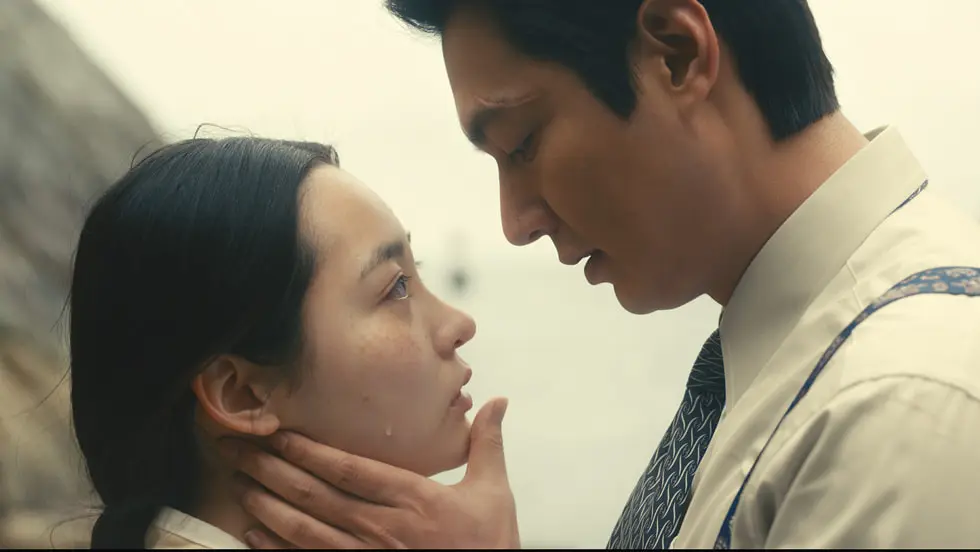Summary
A tearful finale that may not entirely resolve all plot points but brings a fitting conclusion to the generational drama.
This recap of the Apple TV+ series Pachinko season 1, episode 8 — the finale and ending explained — contains spoilers.
Access the archive of recaps, reviews, and news for Pachinko.
Pachinko season 1, episode 8 recap – the finale and ending explained
In “Chapter Six”, an older Sunja disclosed to Hana, on her deathbed no less, that she had another son called Noa. Sunja then added to this shocking revelation that it was her own fault he was gone. This vague confession could imply that Noa is dead or missing. Either way, the finale introduces us to an adorable seven-year-old Noa, full of hopes and dreams. With the prior knowledge of Noa’s ambiguous demise, there is an exploitative tension now hanging over the child’s head. What is to be his horrific fate? This uncertainty weighs heavily over the thirties timeline, whilst in the eighties Solomon tries to plan for his future. Pachinko is nearing its emotive conclusion, but is it a satisfying end?
“Chapter Eight” opens in Osaka, Japan 1938. Sunja’s son Noa is a smart and capable student, who can speak two languages. He even translates for his illiterate mother. The family perform the traditional ritual titled doljabi, where a one-year-old chooses an item, which in turn decides their future career and prospects. The party is for Noa’s younger brother Mozasu (Solomon’s father), who will later own a Pachinko parlour empire. With episode eight, the filmmakers’ agenda is firmly set on these themes of fate, fortune and one’s future.
In the eighties, Hana is on end of life care, suffering tremendous pain in the process. The doctor mentions the option of using morphine to ease the pain, but her family are hesitant to proceed. Solomon explains to his father his employment termination and aims to launch his own Pachinko Parlour with Yoshii (an untrustworthy businessman). Mozasu is furious, wanting better for his son. There is so much suffering in this chapter, with only further grief when Isak is imprisoned for starting a political uprising in the thirties. Sunja must now provide for her family as a single parent in a poverty-stricken ghetto of the city.
The ending
There is plenty of heartache but there is also inspiration too. Pachinko plays into its two main strengths with the finale. Firstly, the show’s ability to conjure heightened emotion. “Chapter Four” had me in tears and the finale is just as powerful. The gut-wrenching scenes in question involve a young Noa chasing after his father in the police car and Solomon taking Hana to the hospital roof for one last moment in the sunshine. This is a heartbreaking finale that capitalises on the characters’ yearnings. The second strength is finding hope in all this devastation. Sunja starts her own market stall and Hana gets the closest version of her dying wish.
This is a fitting end to the generational saga, one that captures the struggles of a displaced nation and the importance of legacy. Creator Soo Hugh has crafted an exceptional series that hits hard, addressing a forgotten history and its people. The very end scenes take a break from convention, with interviews of the women who endured these atrocities themselves, those who inspired the novel, and subsequent drama. They bring a raw authenticity to the conclusion, which only adds to the overall potency of the subject matter.
What did you think of Pachinko season 1, episode 8 (finale), and the ending? Comment below.
You can watch this series with a subscription to Apple TV+.




